The Boeing 787 Dreamliner is part of a new wave of aircraft that will reshape the way we think about air travel. Designed in the early 2000s, it responds to new trends in the global aviation market that have left old aircraft behind.
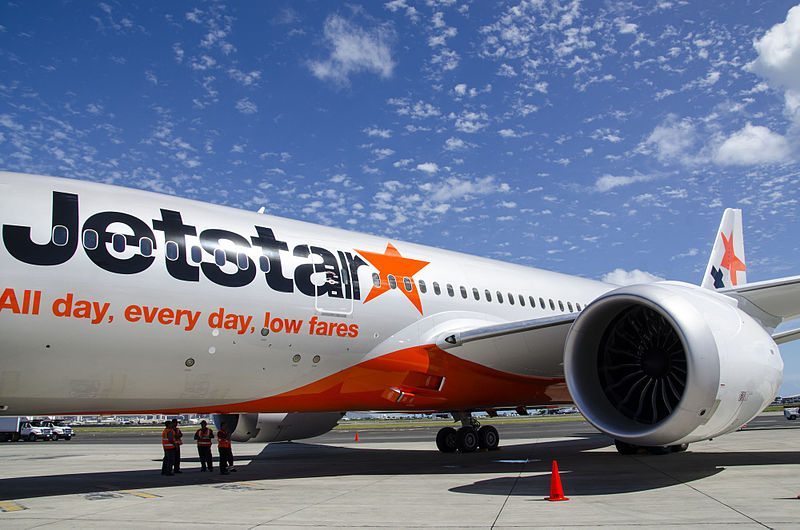
Jetstar Dreamliner (Image: Jetstar Airways, Wikimedia Commons)
Conventional wisdom of the Baby Boomer generation was that where aircraft were concerned, bigger and faster is better. However the first decade of the 21st century has seen major shifts in how people fly, and forced aircraft manufacturers to rethink how they design their products.
- Greater competition in the market, resulting in lower fares and price wars
- An upsurge in the number of air travellers
- An increase in the popularity of budget airlines (partially connected to the previous point)
- Increased urbanisation resulting in a demand for international flights from secondary cities (like Adelaide, Chennai and Sialkot)
- A demand for longer non-stop routes (without the inconvenience and time of refuelling, or to change planes)
- A demand for a wider choice in flight times (morning, afternoon and evening departures, rather than once daily)
All of these influences have seen airlines begin to offer long-haul, non-stop flights from convenient locations rather than the traditional hub-and-spoke model of feeding all passengers though a hub (like Sydney, Delhi or Karachi) before switching them to an international flight. Unfortunately for airlines, filling a large plane like a 747 to fly directly from Perth to, say, Hong Kong, is impossible, especially when passengers are demanding a choice of two or three flights per day. Airlines struggled to offer competitive fares on half-empty planes while the price of oil skyrocketed, and passengers were taking ever longer flights in decreasingly comfortable cabins in the name of saving money.
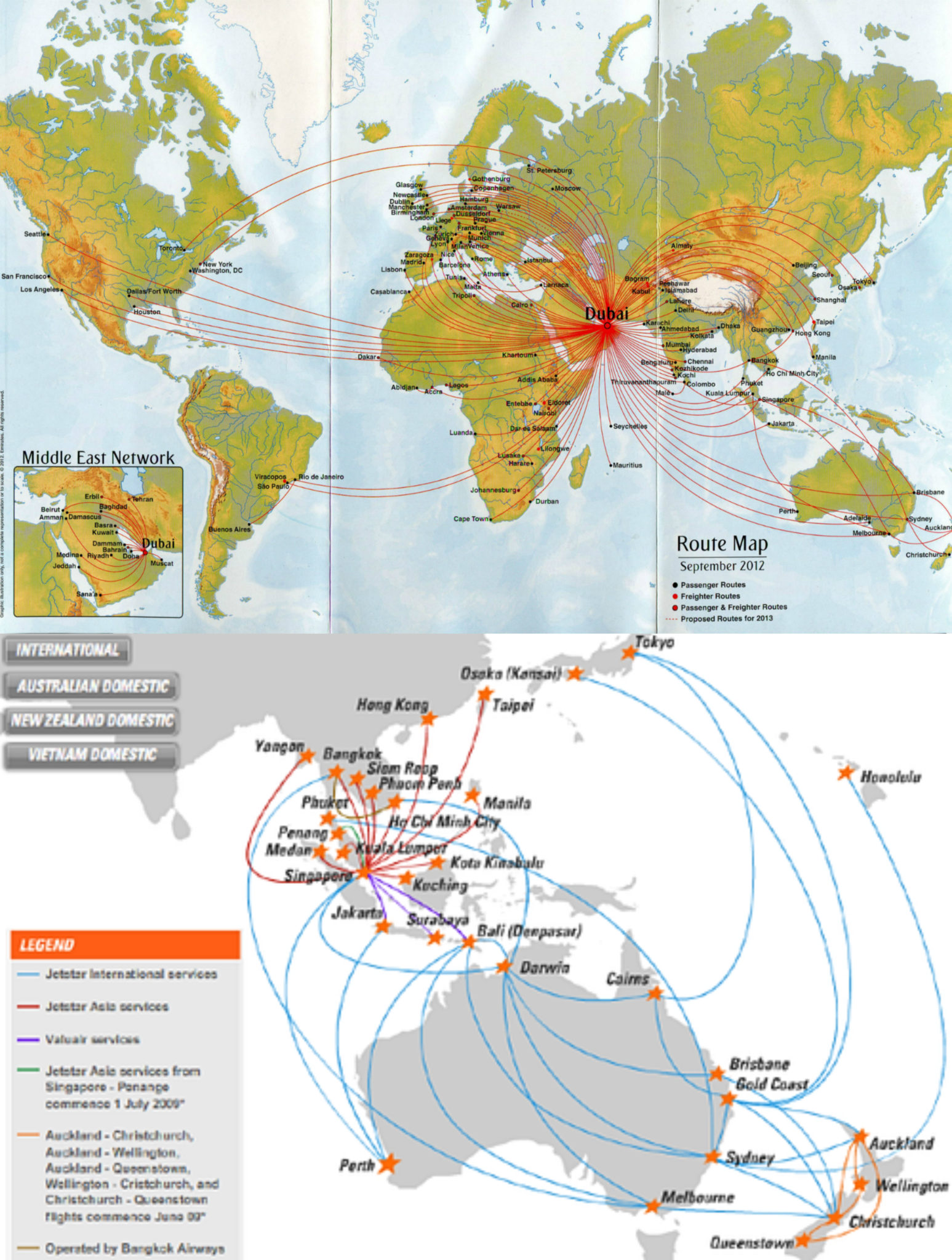
Emirates’ ‘hub-and-spoke’ route map (top) feeds all passengers through Dubai, whereas Jetstar’s ‘point-to-point’ route map (below) offers direct flights from several origins. (Images: Airways News and Centre for Aviation)
The Boeing 787 Dreamliner is the solution to many of these issues, and is very cleverly designed indeed. Made of a composite material, and using 20% less fuel than its predecessor the 767, it gives airlines an economic edge in the numbers game that is modern aviation. It has an ultra-long range, meaning that it can fly non-stop from Melbourne to Istanbul, Lahore to Mexico City, Sydney to Chicago, or Chennai to Sao Paolo. Additionally, it is not a huge plane – seating 240 to 360 passengers, depending on the layout – meaning that airlines can fill it more easily on “long, thin routes” (i.e. – long haul flights between distant cities with low demand, such as the city pairs mentioned above).
Jetstar Dreamliner
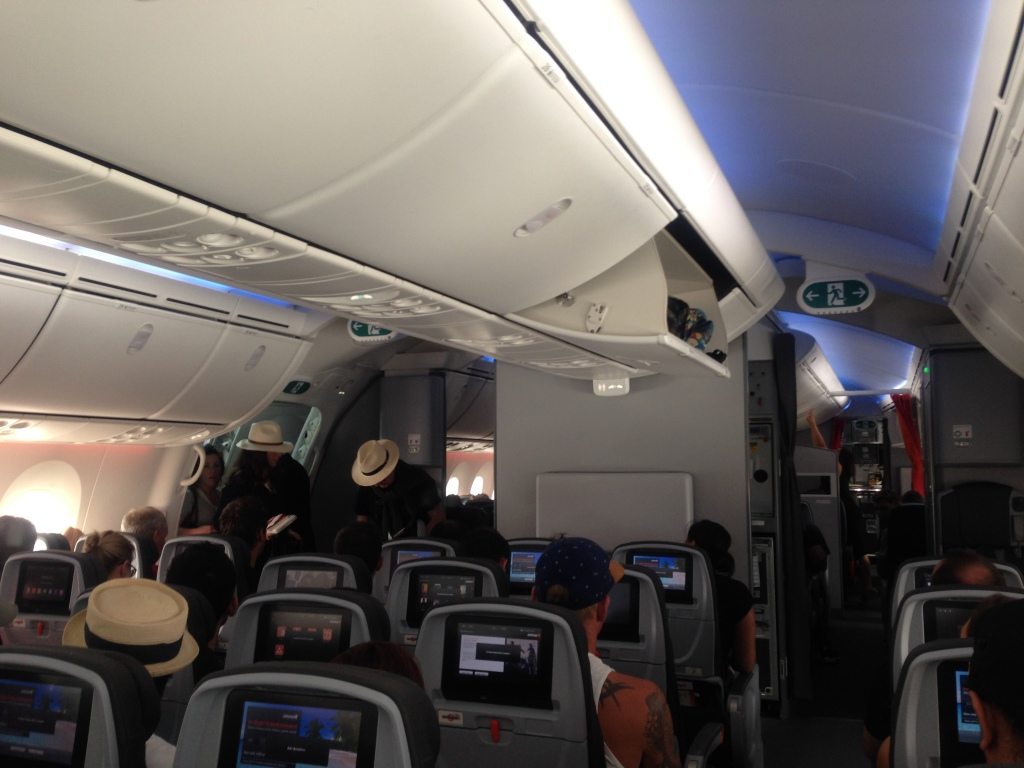
Jetstar Dreamliner interior
Jetstar, Australia’s largest budget airline, offers international flights at a low cost – no meals or entertainment included in the ticket, but these can be bought at a cost onboard. I flew from Sydney to Denpasar, then from Denpasar to Melbourne on the Jetstar Dreamliner in late 2014.
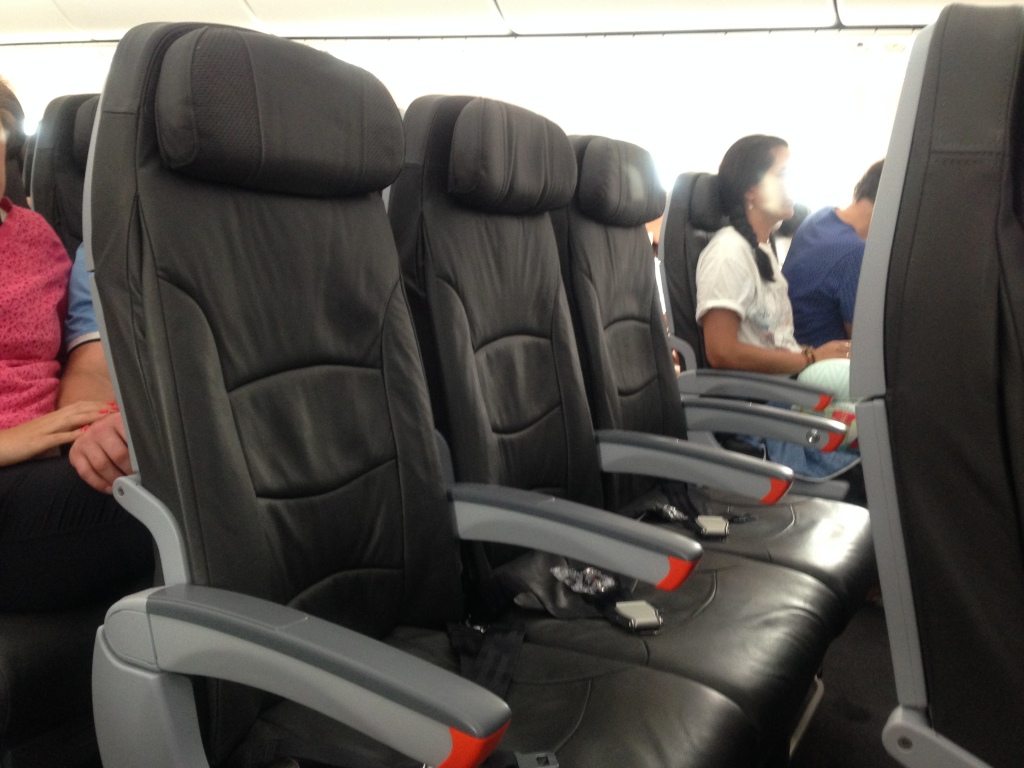
Jetstar’s standard leather seats in economy class
The cabin is divided into 21 business class seats and 314 economy seats. The intelligently designed cabin immediately gives you a feeling of space, although you probably won’t notice anything at first – the elements are subtle but effective. The overhead lockers tuck away neatly into the ceiling allowing more headspace, the windows are bigger and the seating is nine-abreast; three, three and three, meaning that there is only one ‘centre seat’ in each section. Lighting is subtle and set according to the mood; white, orange or blue lights allow your eyes to adjust.
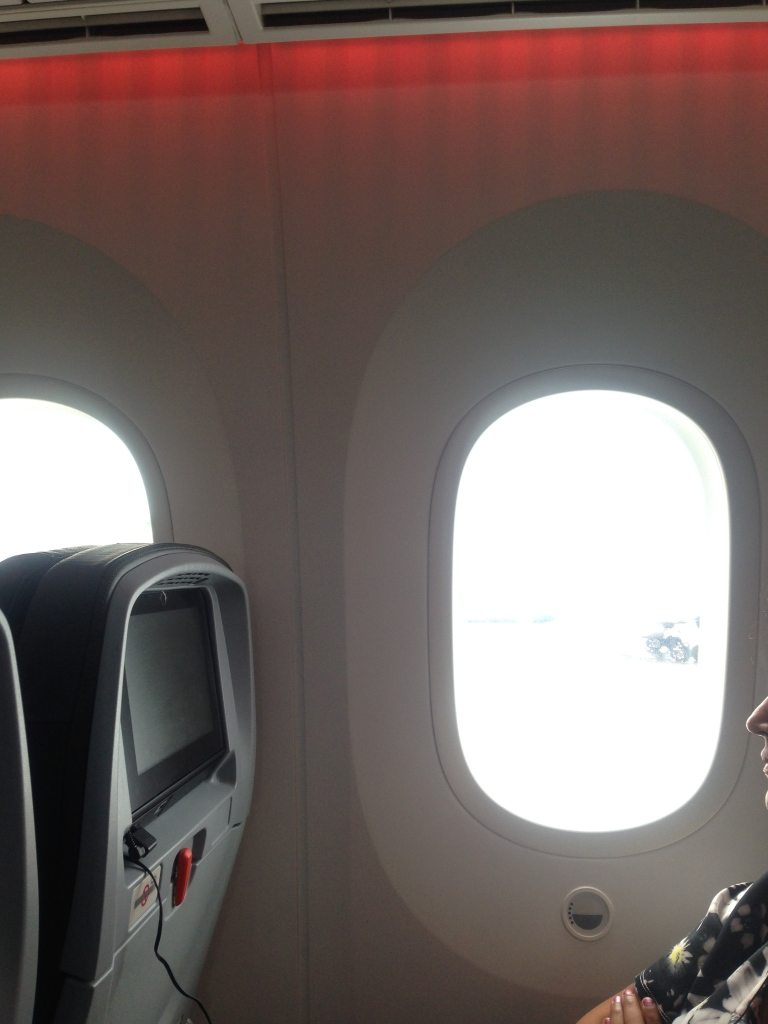
Large, tint-controlled windows on Jetstar’s Dreamliner
The toilets are stationed about midway down the cabin and in the centre section, so there is no bulkhead interrupting the side (ABC or GHJ) seats between the back and the front of the plane. Again, the illusion of space. A nifty hinged door (rather than the usual folding-panel doors) on the toilets also makes it feel more like a bathroom and less like a boxy portaloo.
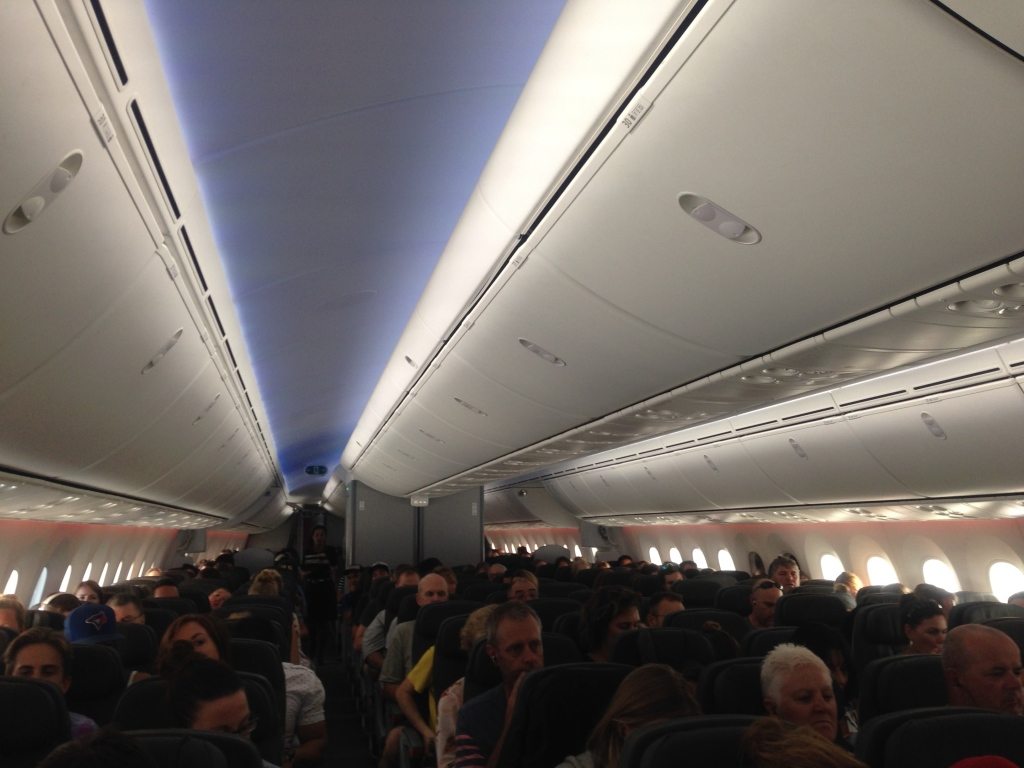
Jetstar Dreamliner interior; note the long views from the front to the back of the cabin
The high-tech aspect of the plane is really special. Instead of window shades, tint-controlled windows almost fade out to dark blue, but not quite; meaning that the sun is blocked out if you want to sleep, but others can still sight the horizon through the translucent glass; an important factor in reducing motion sickness, fatigue and claustrophobia.
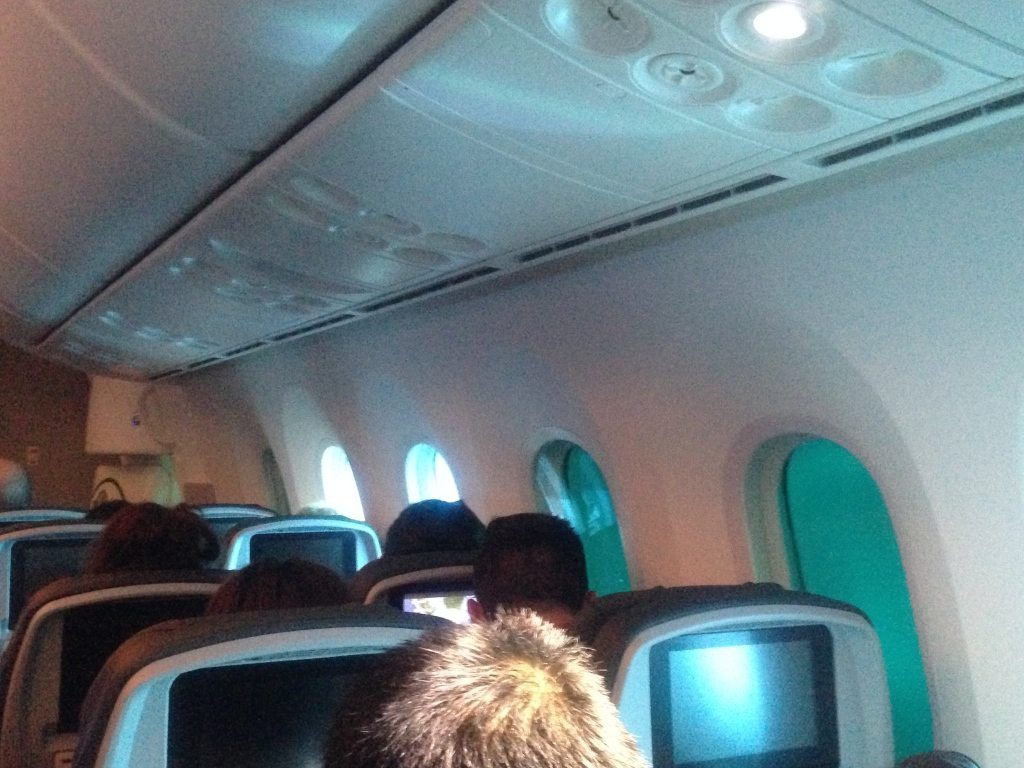
Tint-controlled windows on Jetstar Dreamliner
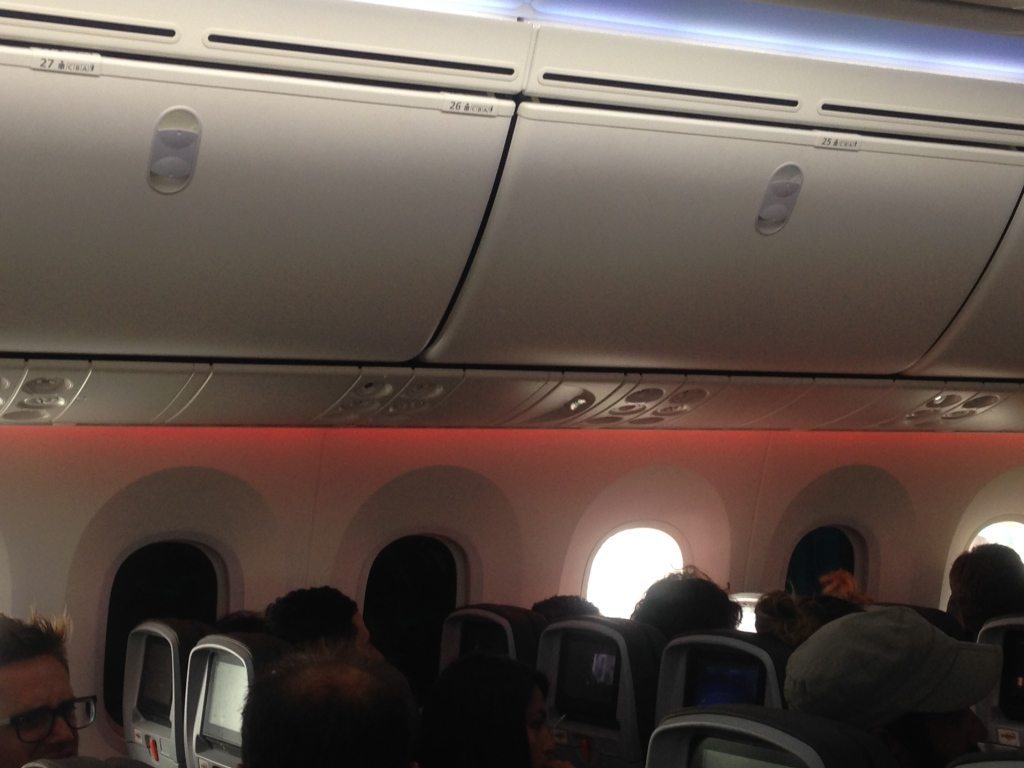
Mood lighting and tinted windows on Jetstar’s Dreamliner
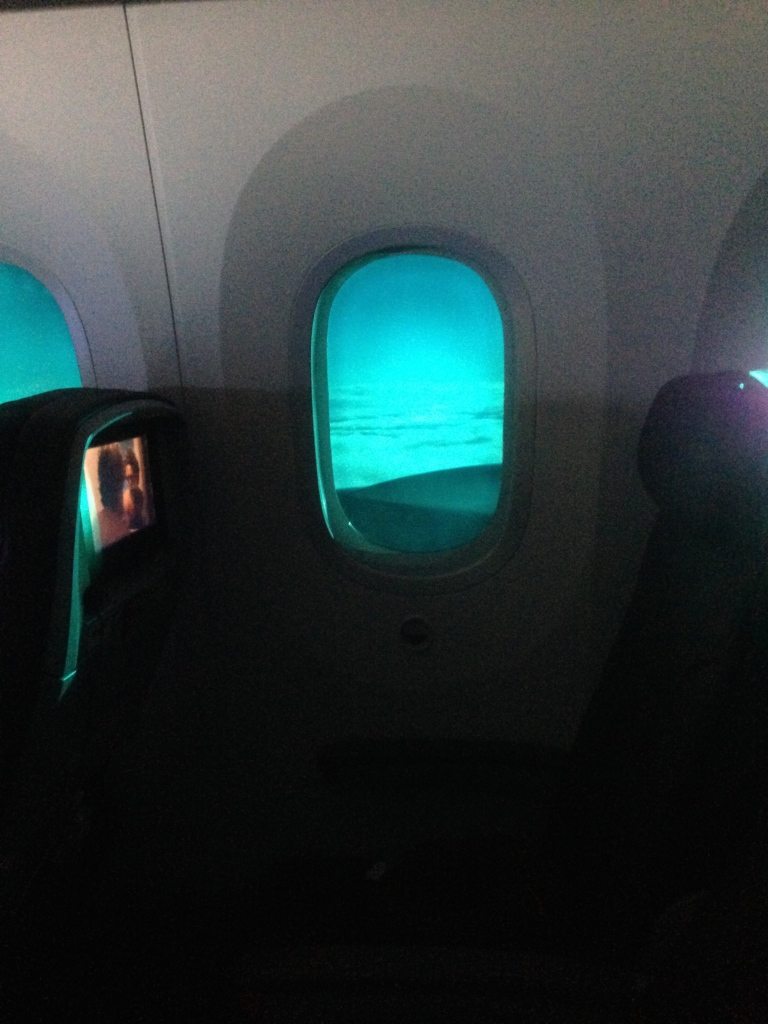
Tint-controlled windows block out the light but allow other passengers a view of the outside world.
The air is pressurised to 6000 feet rather than the usual 8000 feet; important in maintaining overall wellbeing. The cabin humidity is 15%, rather than the usual 4%, leaving you feeling healthier and more energetic when you land. The fuselage is very insulated, resulting in a much quieter environment; taking off was almost eerily silent. And the wings are tapered up ever so slightly, and highly flexible, meaning that they can absorb much more turbulence than older aircraft, resulting in a smoother ride. The aircraft overall provides a very comfortable flight; we disembarked feeling as fresh as we did when we boarded six hours earlier.
In flight food is the usual budget airline offerings; a tasty selection of pre-order or buy-on-board snacks, meals and drinks. Entertainment is improved but still a fairly limited range of movies, TV shows, music and games (don’t expect a library of televisual delights).
Overall, the Jetstar Dreamliner experience is everything it is cracked up to be, and despite Jetstar’s best efforts to improve the customer experience, the credit here must lie with Boeing, who have designed one very clever aircraft.
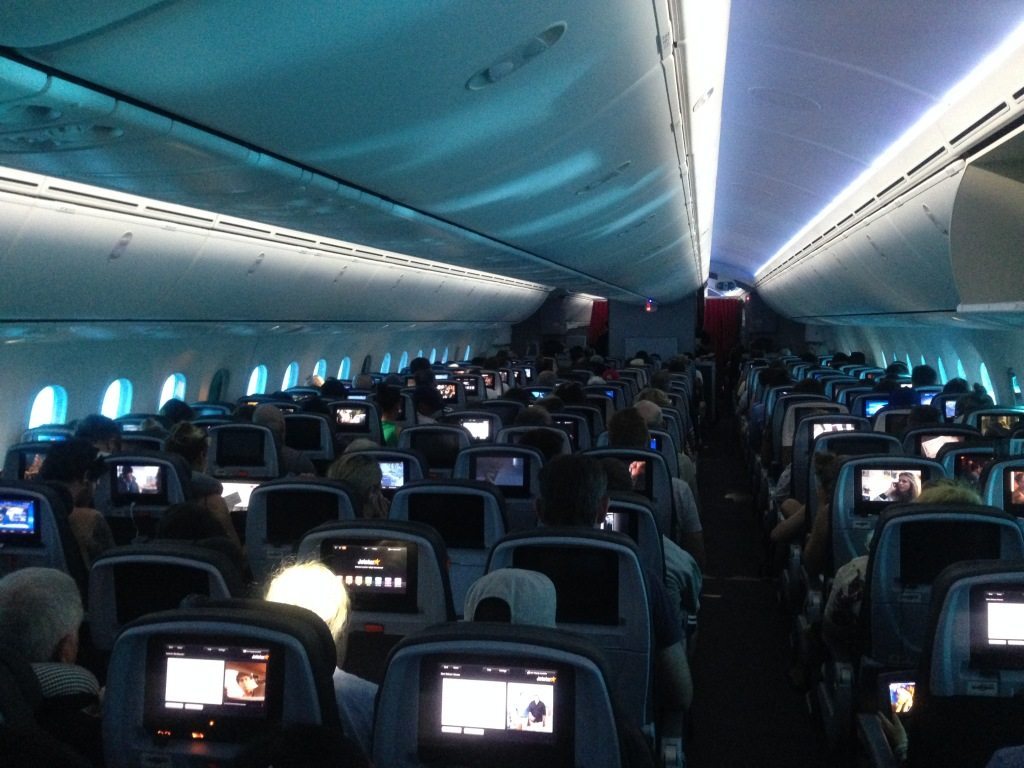
In flight on Jetstar’s Dreamliner
More information on Jetstar’s Dreamliner services including a list of routes can be found here.

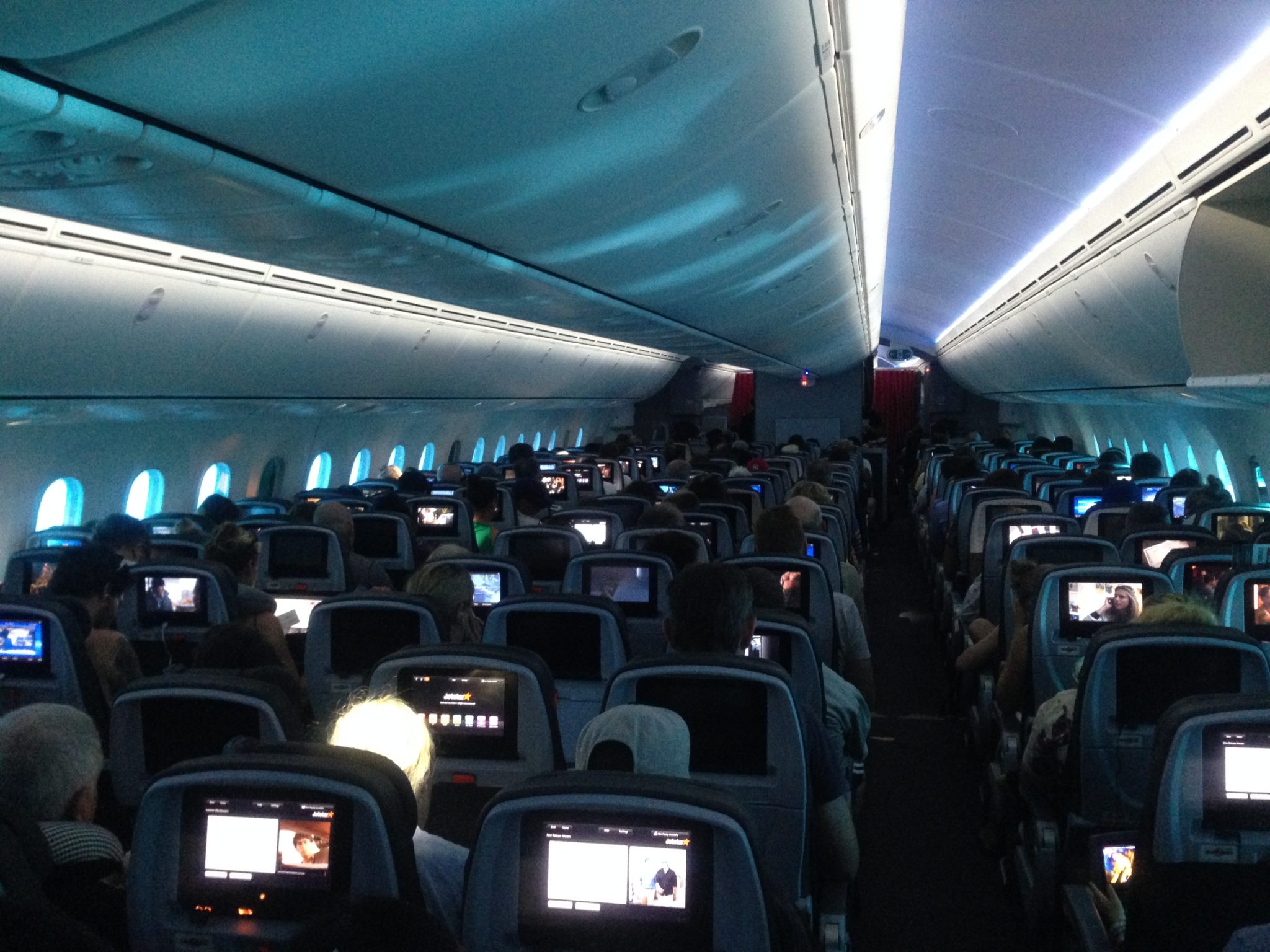
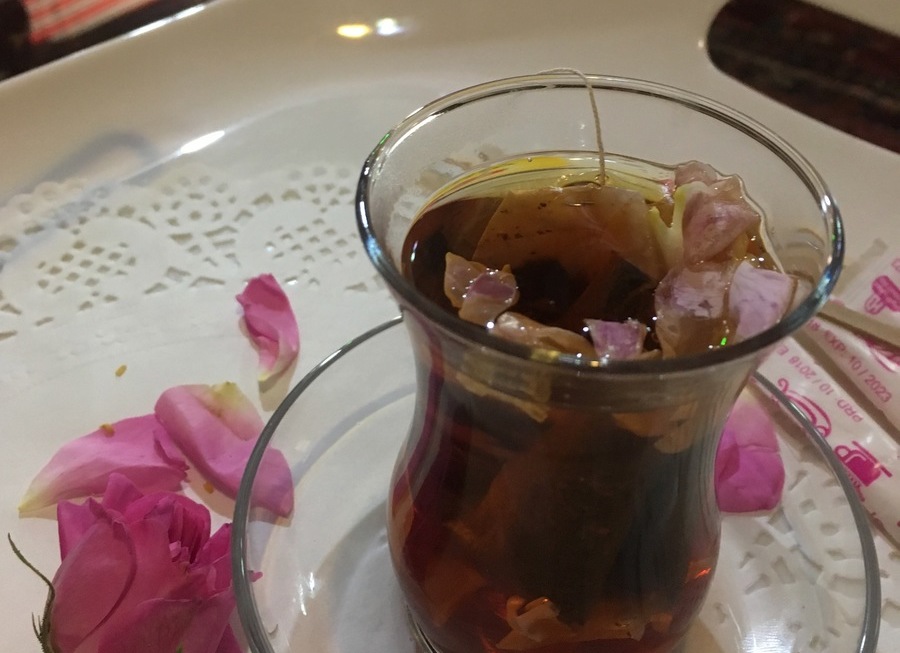


Lahore to Mexico City? That’s.,…. a heck of a long way!
It certainly is… and I’d only do it on a comfortable plane 🙂
Great story I look forward to travelling on the Dreamliner – do
other airlines use this plane?
Thanks for reading Barb! Yes, other airlines do – there’s a list of 787 Dreamliner operators here – http://en.wikipedia.org/wiki/Boeing_787_Dreamliner#Operators
Interesting article Tim. Very informative. & good pictures . Thanks
Thanks mum! Hope you can fly on one some day!
Oh I wondered why on my last long haul flight they had the different coloured lighting, I didn’t fully appreciate the night club feel, I will pay special attention on my journey home tonight. 🙂 Happy travels friend!
Lol yeah it is a bit ‘out there’, but there’s reasoning to it! Happy travels to you too 🙂